Beholder is a genre-defying game in the sense that it feels like a mashup of a bunch of ideas taken from several other contexts and put together into one nice package. The game takes place in a dystopian setting, which is heavily characterized by the authoritarian regime and, for some reason, I can’t shake the feeling that this takes place in an alternate/imaginary cold war setting somewhere along Eastern Europe.
Steam: Released
Developer: Warm Lamp Games
Publisher: Alawar Entertainment
Genre: Mix
Release date: 9th of November, 2016
Type: Single Player
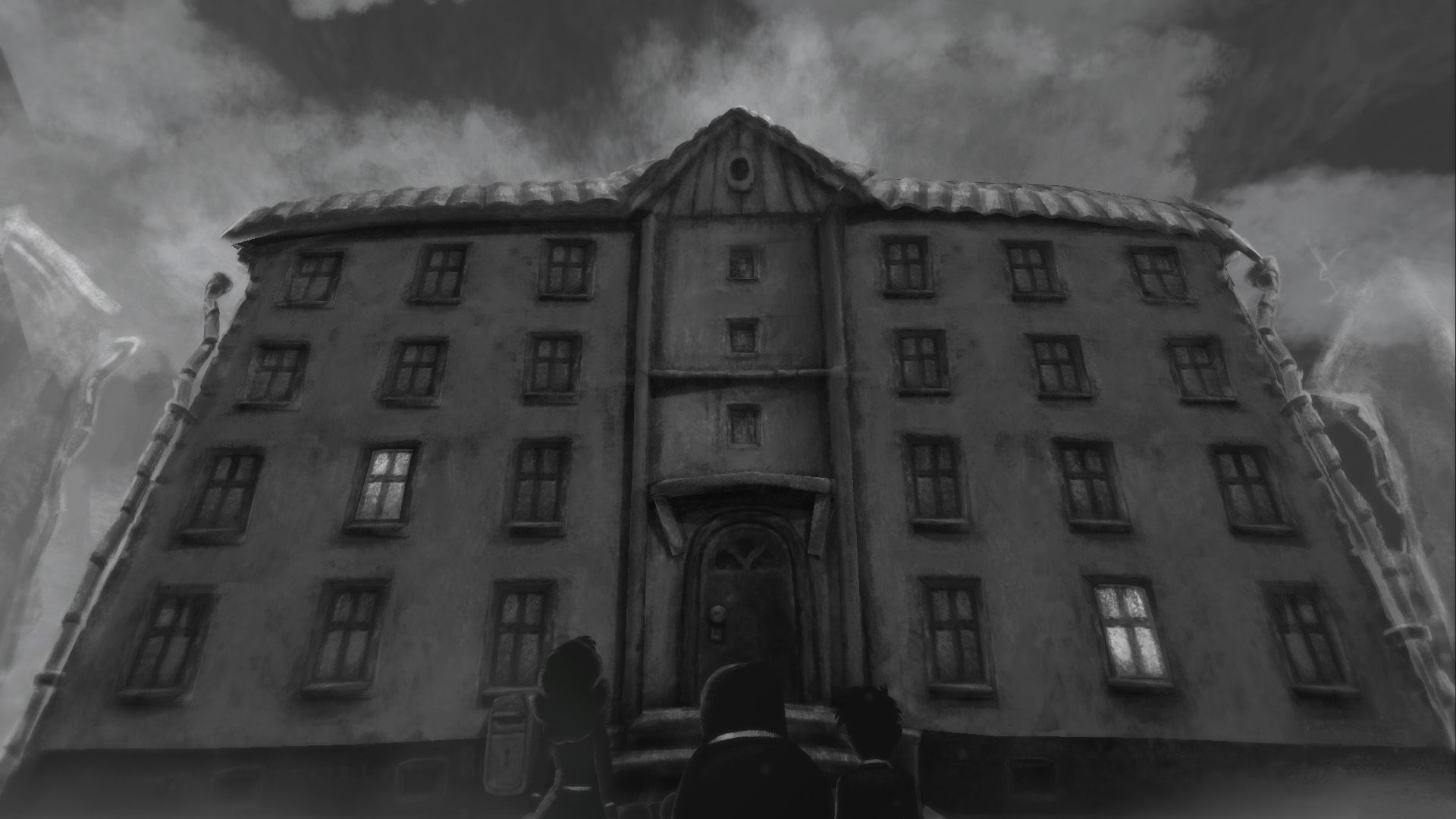
Beholder starts out with you, Carl Stein, and your family being sent by the Ministry of Allocation to a new district, where you’ll assume the role of a landlord of an apartment block. Your job is to accommodate new tenants, make sure the building is in order but, most important of all, spy and gather information about the people living there and report back to the Ministry, in the name of the Great Leader!
Before starting a new game you get to choose which mode/difficulty you want to play. There’s the Trainee mode, in which you have increased income and reduced costs, and then there’s the Government Elite mode, which is pretty much the way it’s meant to be played and that will pit you against some difficult challenges and choices.
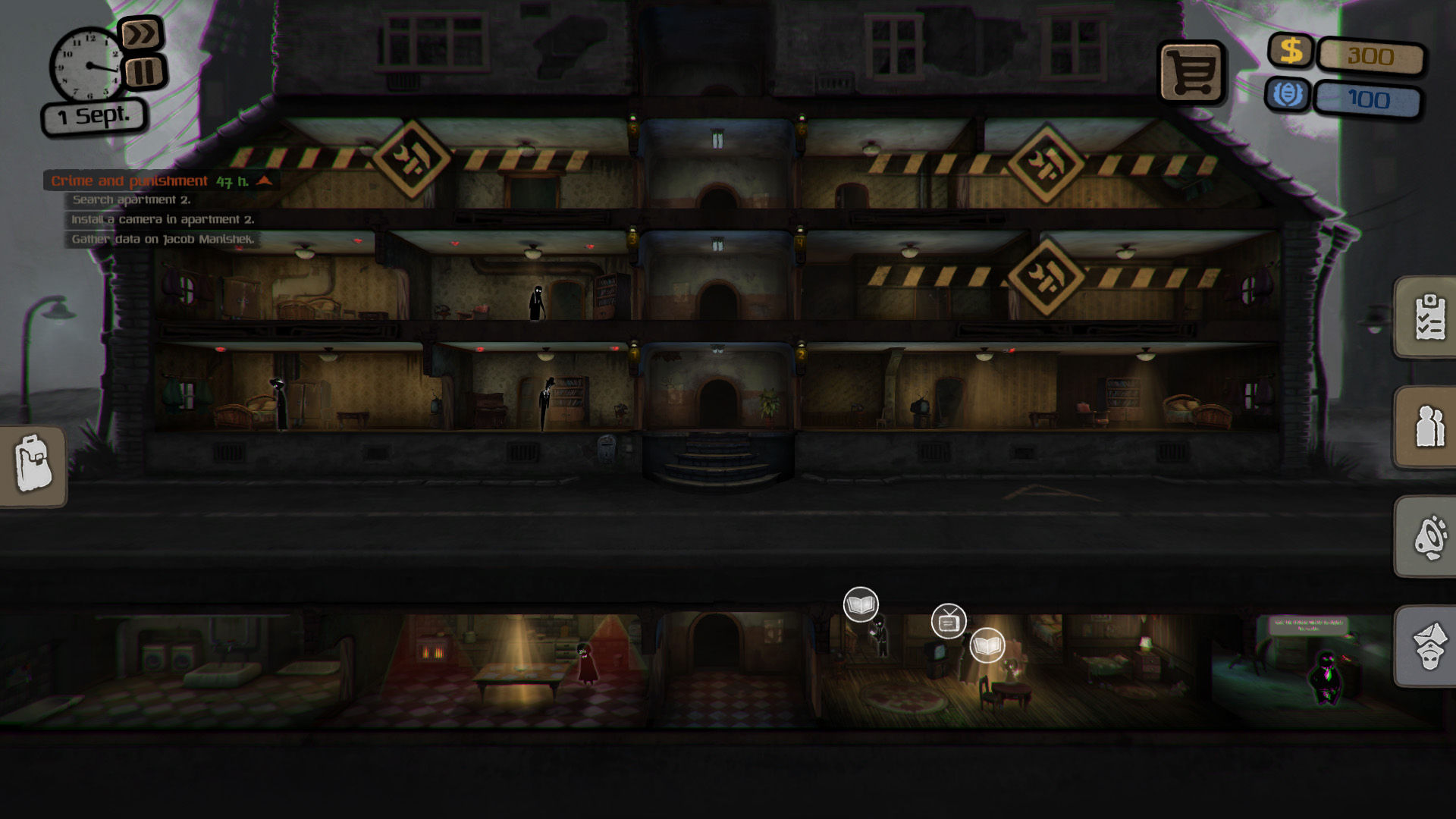
The tutorial is pretty good at explaining how each individual mechanic works and you can take your time with it. You’ll be receiving orders from the Ministry via phone calls and completing these will grant you a reward and increase your influence. Missions can either have a certain time limit on them or be timeless, thus providing some sort of change of pace in terms of gameplay. At the same time, your tenants and your family will also ask things of you and these can be simple tasks but they can also be something that breaks the law and it’s up to you to decide what to do and accept the consequences of your actions. Even if you choose to do X instead of Y, sometimes the consequences of those actions won’t surface until very late in the game. I found this to be a really interesting sort of plot twist that has made me curious to play the game more times in order to see the different results that different actions can yield. There are also some sort of “special events” that will occur at certain parts of the game that manage to illustrate in a very good way the state of things, thus providing some sort of narrative to what’s really going on the country.
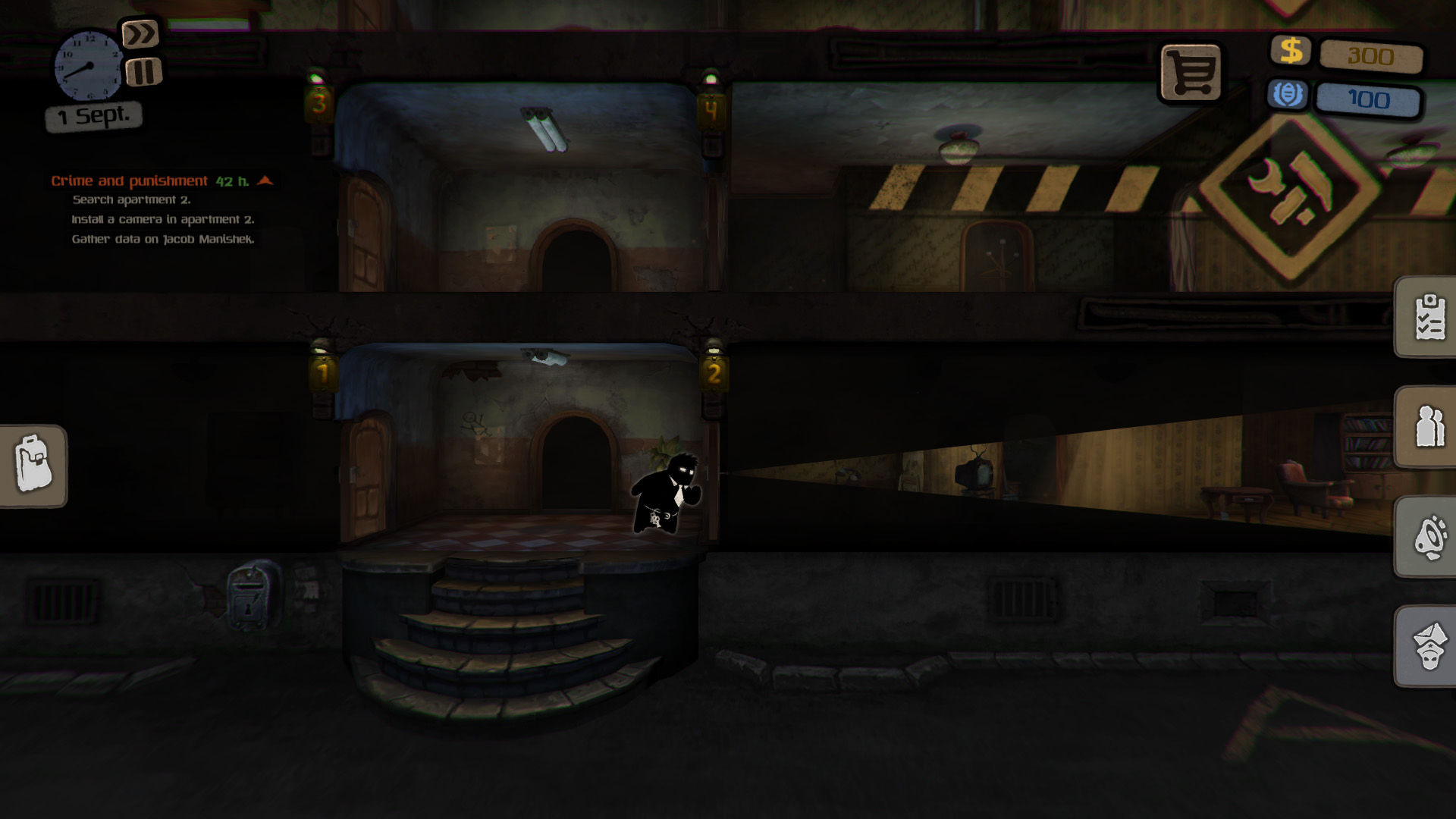
The way the game combines the atmosphere, drama and tension of games such as Papers, Please with a weird mixture of management and spying is really well done. You’ll be spying on tenants by peeking through their keyhole, breaking into their apartments when they’re not there in order to gather evidence, and placing cameras in smoke alarms in the hopes of catching them doing something illegal. The information you gather about them is then used for profiling purposes and, potentially, for reporting them to the authorities. This is where the game gets really interesting because every few days the State will issue a new directive and these can be something such as the prohibition of political propaganda or that the possession of apples or crying is prohibited, there’s all sorts of silly things used to portray such an authoritarian regime. Anything can be used to incriminate your tenants, including blackmail and planting evidence.
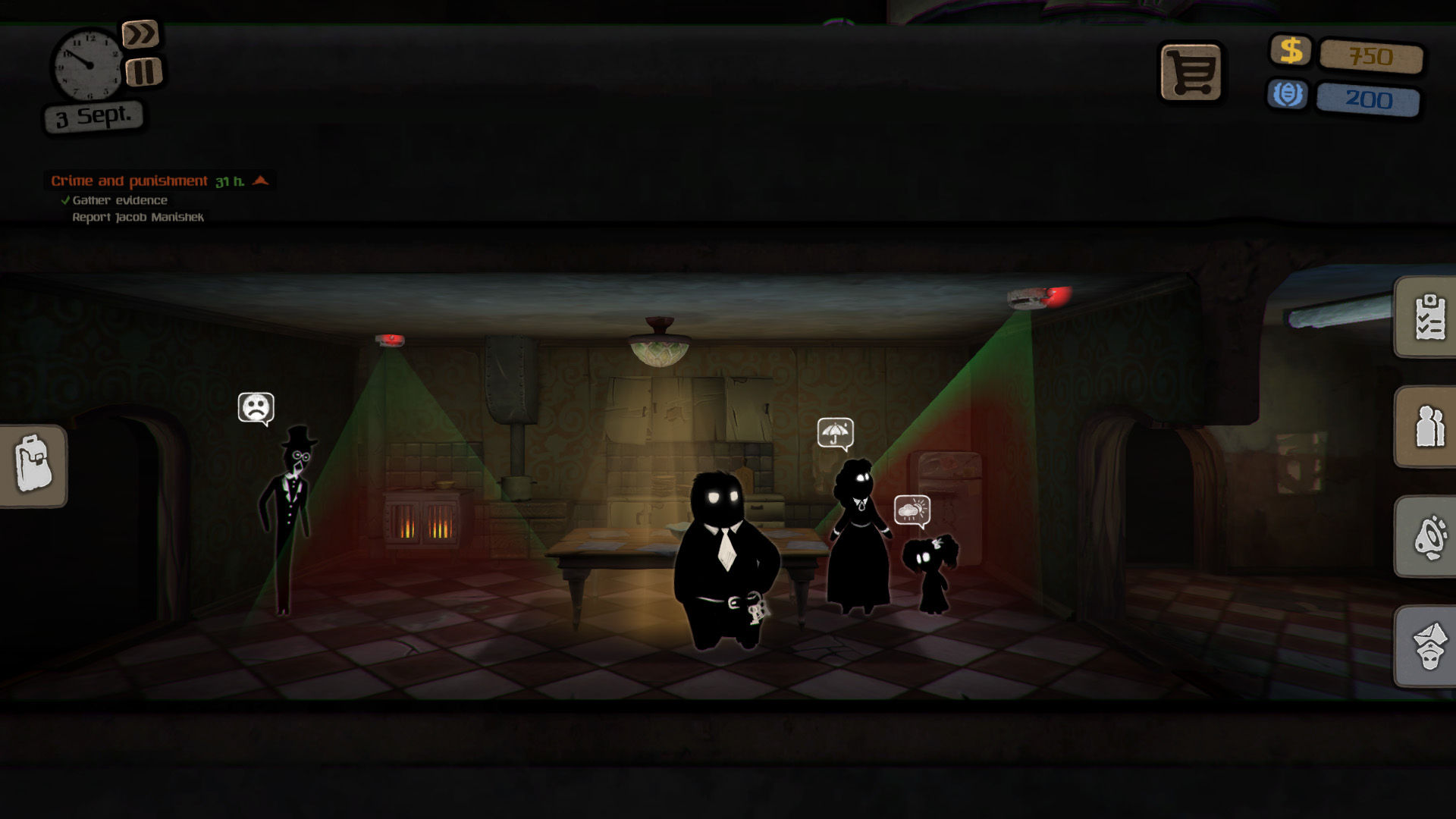
In terms of narrative and story, I think that the game does a wonderful job in creating a believable world, albeit silly at times. The occasional cutscenes are pretty well done but I wished there were more of them throughout the game. The line of communication between Carl and the Ministry, the newspapers you receive in the mail, the other mysterious callers and the conversations between the tenants and Carl’s family really do an excellent job in creating a living world behind all the main gameplay mechanics. I just find it a shame that the dialogue between Carl and other characters isn’t voice acted, but then again, the voice acting isn’t really that good in my opinion, so it’s probably for the best to leave it the way it is. One thing I did notice but I didn’t thought to be that huge of a deal were some minor grammar mistakes, but that doesn’t in any way retracted me from understanding what the game was trying to transmit to me. Now, there was something about the ending I got that didn’t quite make sense, which I won’t mention for the sake of spoilers, but I can safely say that there’s some work that could be done in polishing some loose ends. In any case, this is one of those games that made me care about certain people and, at certain times, regretting treating some of them the way I did.
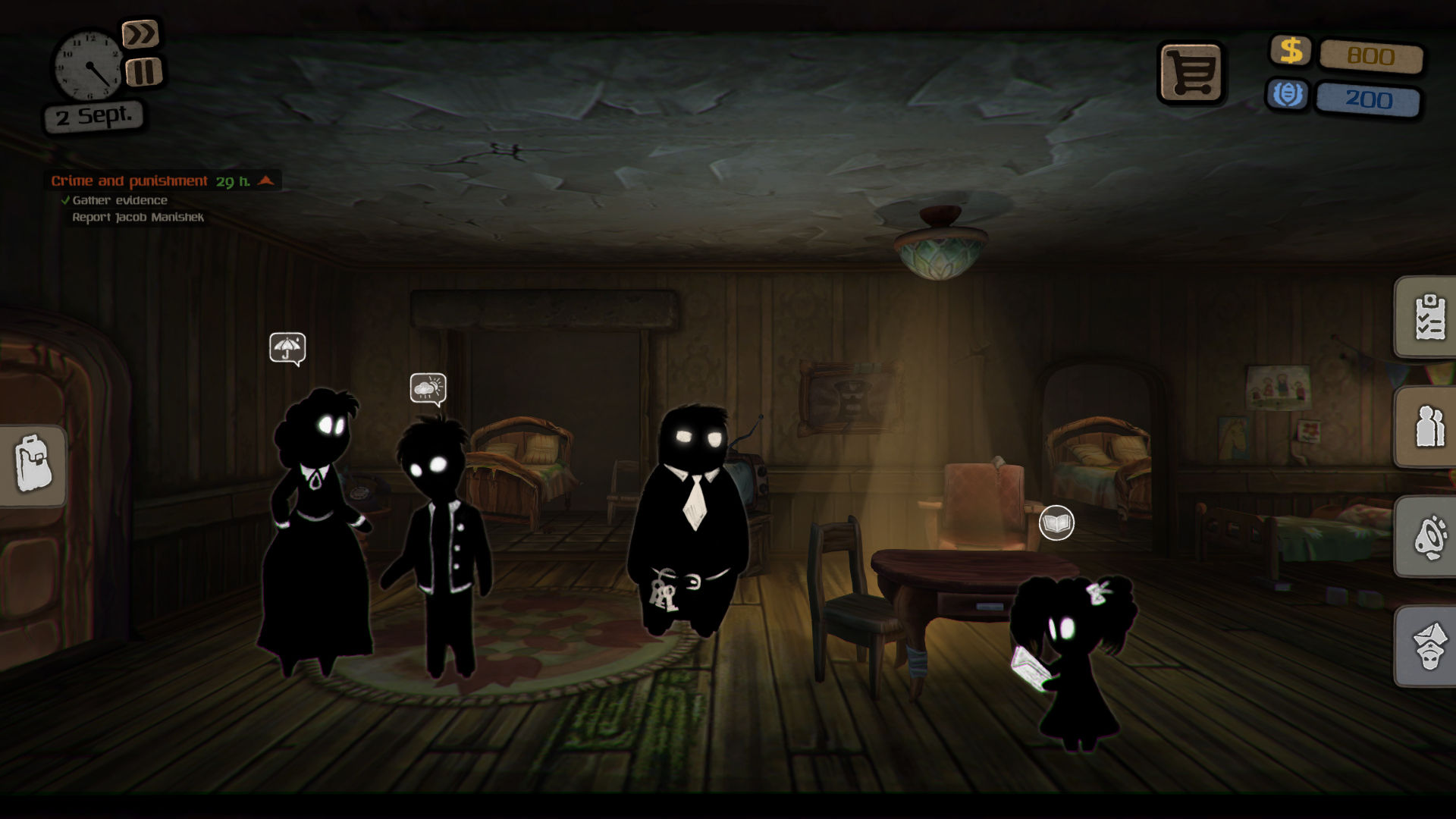
Overall, despite its shortcomings, I feel like Beholder does a very good job in being exactly what it describes itself to be. It’s got a gorgeous graphic style that reminds me of a mashup of Limbo and Little Inferno aesthetics and it’s a great mix of management, spying, intrigue, conspiracy and drama, all thrown into the same package, and it’s something I believe hasn’t really been done before. If you ever wanted to have the lives of other people on your hands, if you like games in which you have to make hard decisions that sometimes require you sacrificing others in favour of your loved ones or if you ever wanted to be able to play the role of the loyal subject or the rebellious official, then I can’t recommend Beholder enough.










